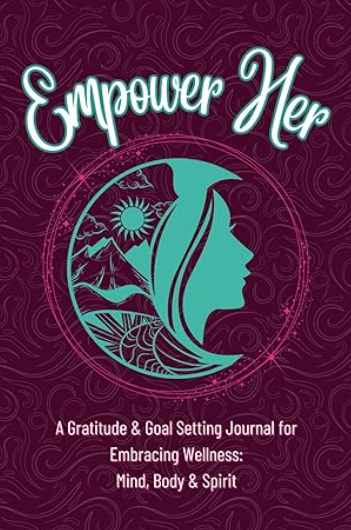Contents
While we can’t control how others behave, we can control how our brains interpret those actions. Practicing gratitude for mental health emerges as a powerful tool in this equation. Research shows gratitude not only boosts happiness and reduces stress but also extends lifespan and enhances overall mental well-being.
Expressing gratitude towards others strengthens relationships, while self-directed letters of gratitude and apology can promote inner healing. By shifting our perspectives and focusing on the present, we unlock powerful strategies for achieving personal goals. Implementing these techniques can significantly improve your mental health and overall well-being.
Are you ready to positively change your mind’s framework? Listen for more!
AVAILABLE WHEREVER YOU LISTEN TO PODCASTS!
Welcome to the Fitness Simplified podcast. I’m Brooke Davis, a women’s functional nutritionist and fitness specialist with Elysian Women’s Wellness. I’m here to simplify your fitness. Today, we’re going to talk about something that everyone needs more of in their life: gratitude.
There are three main pillars of wellness: mind, body, and spirit. Many people mistakenly believe that achieving a certain physical goal will ultimately bring them happiness, so they focus on the body. We get so caught up in the future, what we want to look like, and what we want that we forget to appreciate where we’re at and what we have, which brings us to the mental aspect of wellness.
True fulfillment actually comes from nurturing all aspects of ourselves and requires so much more than just looking a certain way. In my years of coaching, 13 of them to be exact, the people who find the most success long term, whether this is intentional or unintentional, they are addressing all of these aspects of wellness. A cornerstone of our approach to wellness is the practice of gratitude.
Research consistently shows that cultivating gratitude leads to increased happiness, reduced stress, longer life, and improved mental health. Studies have shown that consistent gratitude practices can lead to structural changes in the brain, promoting emotional resilience and overall well-being. In one study, they took about 300 people who were looking for counseling at a university.
They had one group write a letter expressing their gratitude every week for three weeks. The gratitude group reported significantly better mental health compared to the control group at follow-up, in which they didn’t do any gratitude. Twelve weeks after they did that, they reported significantly better mental health.
Another type of written gratitude practice is counting blessings or three good things. A study of this practice found that people who wrote down three things that had gone well in their day and identified the causes of those good things were significantly happier and less depressed, even six months after the study ended. What we focus on is what we focus on, okay? So when we’re intentionally turning our brain to recognize what we love and what we do have, we have less capacity to see what we don’t like and what we don’t have.
The kicker, this is not an overnight process, right? Some of these studies took an upward of 12 weeks of consistent gratitude expression for participants to report their improved mental health, but some were as little as four weeks. So, what exactly is a gratitude practice and how can you integrate it into your daily life? Gratitude isn’t just a fleeting feeling of thankfulness. It’s a mindset.
It’s a way of seeing the world with appreciation and abundance. And by intentionally focusing on what we love and what we have, that’s what fills our mind. So, we naturally shift our attention away from negativity and scarcity.
The first step is awareness and intention. You’re listening to this, so you’re already off to a good start. But a lot of times we’re feeding ourselves negative thoughts or focusing on things going wrong when we don’t even realize it and it becomes a habit.
Especially as women, we’re conditioned to pick ourselves apart, starting with getting dressed in the morning, right? Looking in the mirror, labeling every part of our body that society has deemed a flaw, from the cellulite on our legs to the wrinkles on our face. Might I remind you, most of which is totally normal. Hey, we might then spill our morning coffee and think, of course, this would happen to me, right? It’s just going to be a shit Monday.
And that’s where your mind and your life stay. So first off, I’d like you to just start being aware of those thoughts. Noticing when and where throughout your day you find yourself automatically going to the negative.
What thought patterns have you created that take you to find the worst instead of the best? By age 30, we’re pretty much on autopilot. So, if we don’t intentionally work to change these thoughts, this is your life, then how do we start to shift those thoughts and that patterning? One of the easiest things we like to do is introduce people to a morning gratitude list, similar to the three positives that we talked about in the study.

So, start your morning by writing down three things that you’re grateful for. It can bring that awareness and really just set your tone for the day. Things as simple as the warm coffee that you might have had the “opportunity” to spill, right? A roof over your head, shoes on your feet.
We take for granted so many things that so many people in the world won’t have. This start to your day just really sets the tone for more to come. Don’t just jot them down and move on.
Take a few minutes to think about where you’re at and those things that you are grateful for. Maybe think about a time you didn’t have them and even wished or prayed for them and how it feels now to actually have it. I’ve literally been brought to tears thinking about how blessed I am just from a simple three-point gratitude list.
It can be really, really impactful. This actually gets you started on a practice of meditation, which brings me to my next point. So, meditation or setting aside just a few minutes to think about, again, maybe the things you wrote down or sit down and look around your home, your work, out in nature, and be present while you cultivate that sense of appreciation for everything around you in the here and now.
Most people I mention this to say I’m so bad at meditation, and that’s literally the point. Nobody starts out being good at meditation. The worse you are, the more you need to practice it.
But meditation also doesn’t necessarily just mean sitting cross-legged on a cushion with your fingers touching, although that might actually help you despite how weird you might think it sounds. There are short, guided meditations you can follow along with if that’s helpful to keep your mind focused. You can listen to nature sounds or calming music or sit in silence as these can be part of gratitude for mental health.
You likely won’t ever master meditation. That’s not the point. It’s not about that.
You don’t have to be good at something for it to benefit you. There’s no rules to how you create your practice. This is also a great opportunity to start shifting your thoughts using reframing.
If you think back to the morning when you see your body, you start to pick it apart. Start thinking instead of all the things that your body does for you and what you’re grateful for. If you got out of bed this morning and have the ability to lift your babies or hug your significant other, your body allows you to do that.
So, think on it. Be grateful your heart is still beating to get you through another day. This is also part of Gratitude for Mental Health. If you had kids and you have stretch marks or loose skin, take those as reminders of how grateful you are that your body created that little miracle.
Make it a challenge to see how creative you can get with your reframing. How deep can you go with it? Thinking about every time you get stuck in traffic, being grateful for the time to chill out and listen to music or your favorite podcast or be grateful that it wasn’t your car smashed in the middle of the road blocking traffic. Tons of examples but I think you get the idea.
So beyond individual practices, gratitude also has the power to transform our relationships. By expressing gratitude for mental health towards others, we can deepen our connection with them and really build a community around you. Writing letters expressing your gratitude for those that you love, who support you, or that you support can be extremely impactful not only for yourselves but also others.
You can write letters and never deliver them. You can share them, make someone else’s day too. Even writing letters to people who we may not normally find gratitude in, like a tough boss, a co-worker, or an ex-partner you don’t get along with, can be really helpful to shifting your mindset when dealing with them.
Keeping in mind we can’t control other people, but we can control our thoughts and how those interactions impact us. So, for example, thanking them for teaching you to let things that are said roll off your back, or helping you appreciate the good people in your life more. Thanking them for helping you realize that they are not the kind of people that you want to be.
The opportunity for growth is really endless. Again, those may be the kind of letters you don’t deliver, or maybe you do. And lastly, this is an exercise that we do with clients, and it can be really impactful.
That is, writing a letter to yourself, not only of gratitude but of apology. Apology for thoughts and actions toward yourself and your body that don’t reflect the path you want to be on. Then, shifting those to gratitude and support. Talking to yourself just like you would a friend who needs some of that encouragement and love would help with gratitude for mental health
So those are just some actionable steps that you can take to start to improve your mental health and your success really overall when it comes to health and wellness. That shift of perspective might actually be the answer you need to finally [reach] the goals that you have because you are prioritizing the now and not the future.
If you have any questions, suggestions for future topics, or just want to chat, feel free to reach out to us on Instagram at Brooke underscore Elysian and Facebook, link in the show notes, or via our website Elysianwomenswellness.com. And if you enjoyed what you heard today, we’d be thrilled if you could take a half-second to leave us a five-star review. Not only will you be helping others find our show, but you’ll also be entered into our monthly $100 giveaway for no reviews. New episodes drop every Monday, so make sure to hit that subscribe button and stay tuned for more.
Thanks for listening. See you soon.
Coach Brooke Davis Links:
Website: bdavistraining.com
LinkedIn: Brooke Davis – Owner – Davis Fitness
Facebook: Brooke Davis, CPT
Instagram: Brooke Davis (@brooke_elysian)
Free Community: Women’s Fitness Simplified: Lean down, tone up, build confidence!
Hormone Analysis: https://brookedavis.typeform.com/to/quKUjmTI

Women’s Functional Nutritionist & Fitness Specialist along with CEO of Elysian Women’s Wellness.
God, family, fitness – in that order. Fitness isn’t my job, it’s my passion. My favorite things include traveling the world, being a mama and making a difference.
14 years of experience in the wellness industry has brought me to an understanding that when you’re ready – you’ll do it. So when you are, we’re here to keep you simply well.
The last “program” you’ll ever buy. Your individualized training & nutrition plan that teaches the why & how to create lasting changes with me by your side every step of the way!

Error: No feed found.
Please go to the Instagram Feed settings page to create a feed.
Level 0, 1, 2 & 3: Level Up your workouts with beginner to advanced plans designed with a focus lift each month, progressive overload, instructional videos & all inclusive training & nutrition guides.
Copyright ©2025. Gamechanger
A BRANDT CREATIVE CO. TEMPLATE. Trusted by Wimgo.